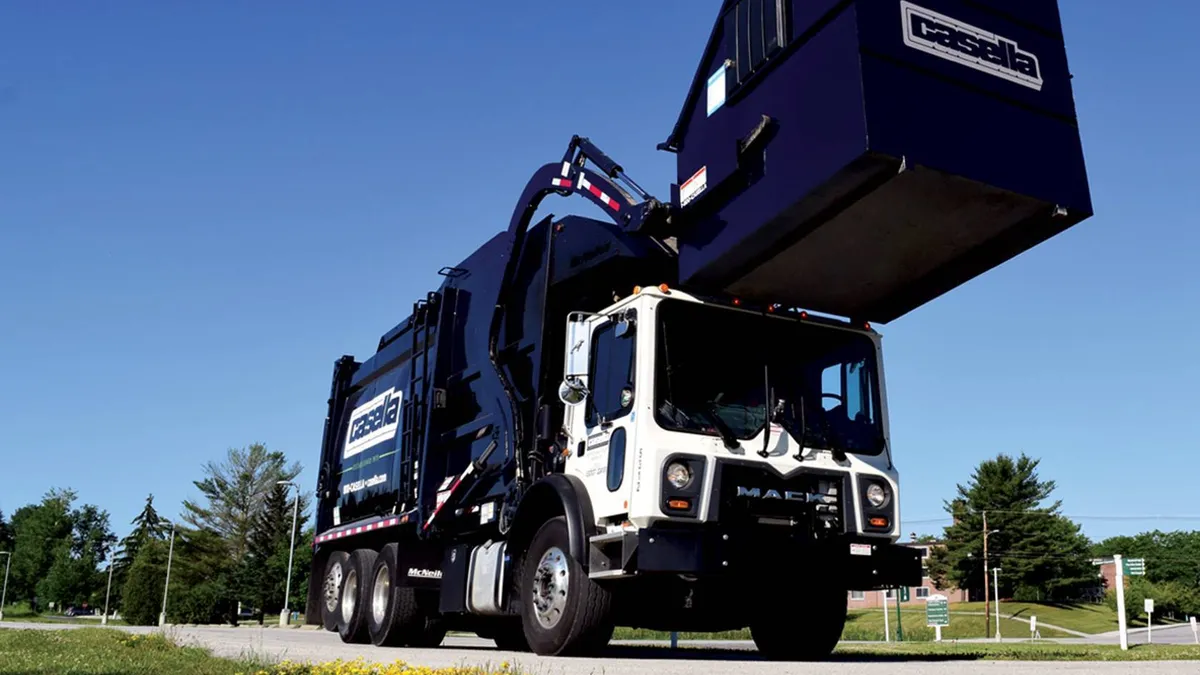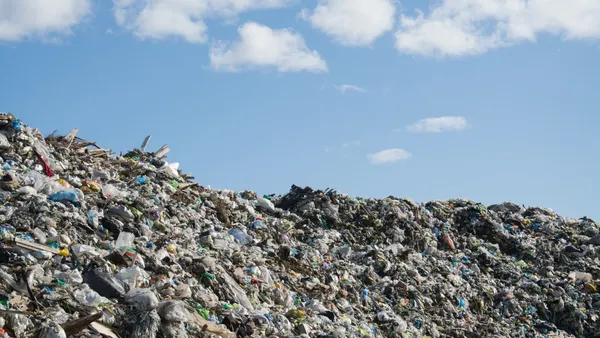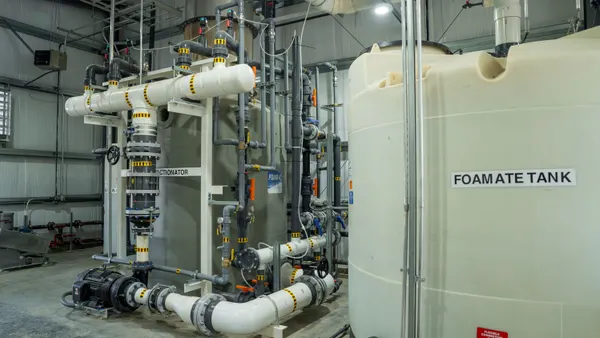Dive Brief:
- The New Hampshire Supreme Court ruled on Dec. 28 that state regulators were allowed to issue Casella Waste Systems a permit to expand its landfill in Bethlehem, New Hampshire.
- Casella first received the permit in 2020, but the Conservation Law Foundation appealed the issuance, arguing that the company did not meet state public benefit requirements. The New Hampshire Waste Management Council sided with CLF in November 2022, saying the state would not need the extra landfill space until 2026, the final year of Casella's proposed expansion.
- The state Supreme Court ruling reverses that decision. Casella already constructed the Bethlehem expansion and has accepted waste there based on the conditions of the 2020 permit, according to Casella spokesperson Jeff Weld.
Dive Insight:
The permit battle is the latest in New Hampshire’s ongoing debate about how to manage waste that comes from both within and outside of the state. In 2020, about 47% of the solid waste disposed in New Hampshire landfills and incinerators was generated outside the state, according to a report from a working group of the state Department of Environmental Services.
New Hampshire is also in the process of reviewing its landfill rules. Any changes are expected to directly shape future landfill projects in the state, including the proposed Granite State Landfill, a greenfield project Casella Waste Systems has proposed to open in Dalton, New Hampshire, sometime in 2027 once the Bethlehem permit runs out. That landfill project has faced pushback from residents and activist groups.
For now, Casella said the state Supreme Court ruling will allow the Bethlehem landfill, operating via the subsidiary North Country Environmental Services, to operate under a “continuity of service” after years of permit limbo. The landfill provides disposal capacity for more than 60,000 businesses and residents in about 200 towns in New Hampshire, the company said. “This decision recognizes the ongoing need for disposal capacity in the state,” CEO John Casella said in a statement.
At issue in the Bethlehem case was whether Casella’s proposed landfill capacity expansion met “public benefit” requirements under New Hampshire law, which includes a provision that the project must “ensure that adequate capacity exists within the state to accommodate the solid waste generated” within the state.
State regulators from DES originally issued Casella the permit in 2020 because they determined a “projected shortfall in existing permitted disposal capacity” would occur in 2026 without the Bethlehem expansion, according to court documents.
In 2022, however, the New Hampshire Waste Management Council determined that DES “erred in granting NCES a permit” because the expansion, known as Stage VI, was proposed to operate for six years, “but the first five years of the facility’s operation would occur during a period without any shortfall,” according to court documents.
The December 2023 ruling from the state Supreme Court reversed the council’s determination, instead saying the landfill plan did satisfy a capacity need.
In a statement, CLF said it was “disappointed with this decision which will allow this polluting landfill to expand.” Though CLF did not mention specific next steps for protesting NCES, it said it would “continue our efforts to reduce waste and stop unnecessary landfill expansions throughout New England.”
Casella also continues to work on its plans to open the Granite State landfill in Dalton, which Weld said in an email is meant to “provide the necessary continuity of services required” when NCES’s expansion permit ends in 2027.
The Dalton landfill project has faced an ongoing series of permit and public opinion issues. Casella submitted a new permit application in October, which comes after it withdrew a previous application in 2022 when state regulators said it was incomplete. The new application proposed a 70-acre site that would receive 1,800 tons of waste a day for about 18 years.
Casella sees the Bethlehem and Dalton projects as part of a larger effort to align with the state’s solid waste management plan that calls for reducing both municipal solid waste disposal and construction and demolition disposal 25% by 2030 and 45% by 2050.
“Disposal capacity is the foundation that allows for the continuation of ongoing materials management efforts. By providing customers with stable, reliable disposal capacity, we can understand the materials and propose better methods to manage them differently, which will ultimately benefit New Hampshire on its road to a more sustainable future,” John Casella said in a statement.











